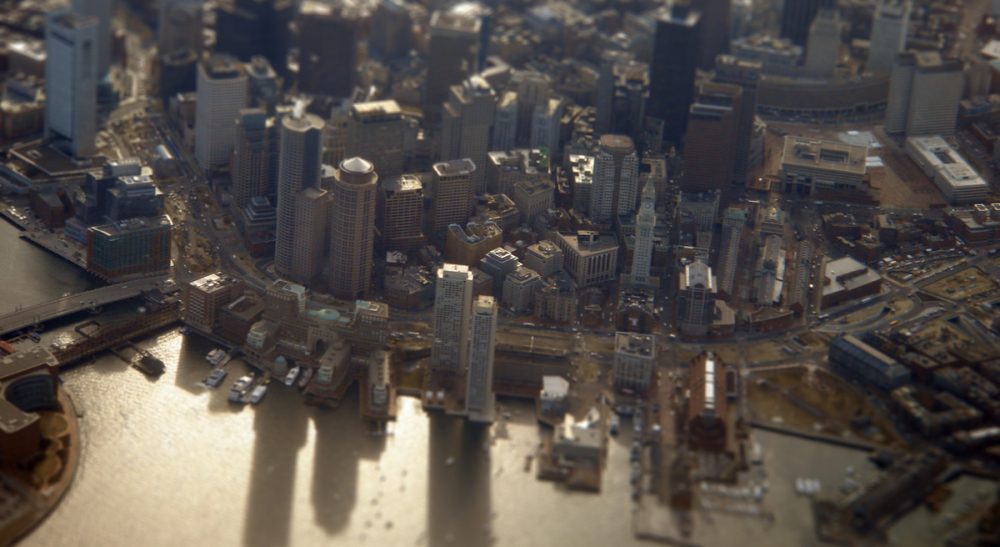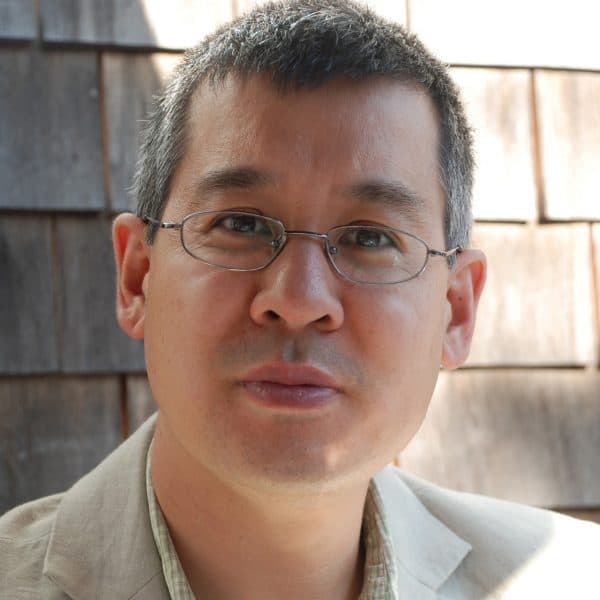Advertisement
The City-State Of Boston

Author Anita Diamant recently wrote in Cognoscenti about how, even though she lives in Newton, she was proud and happy to welcome Boston's new mayor into office. And the trolls descended! How dare a Newton resident call herself a Bostonian?, the commenters cried.
Typical.
My wife's grandfather lived in Boston for 75 years but to his dying day (he lived to be 100) he would tell you he was from Fall River. He knew that if he claimed the city where he raised four children as his hometown, native Bostonians would object.
When I moved to West Roxbury, my neighbor came over to introduce himself. "I'm from around here," he told me, "but my wife is not. She's from Hyde Park." In other words, two miles away was a whole different place.
Now, I'm not naive. I know there are all sorts of tax base issues between the city of Boston and its suburbs. I know it's annoying that it seems anyone who has a kid moves out of the city, depriving the schools of the middle class parents who could improve the system for everyone.
I get that.
But can we embrace Boston as a city-state that encompasses an area beyond the Charles River and Allandale farm? As a concept, I mean?
I teach in Dorchester and explaining Italian Renaissance city-states like Florence to my students is easy: It's like Red Sox Nation. There's an epicenter (Fenway) but the influence expands outward, throughout New England until it bumps up (somewhere in Connecticut) with the competing influence of the Yankees or Mets.
So, metropolitan Boston is not legally or accurately "Boston" but culturally, it is.
Ask people from around the world what Boston means to them, and they will tell you five things:
1. Boston has great colleges and universities.
2. Boston has great sports teams and athletic events.
3. Boston has great hospitals.
4. Boston put in motion the Revolutionary War and thus the United States.
5. Boston has public intellectuals and writers.
Let's take these one at a time.
1. Boston does have great colleges, although the two most famous universities in the area are across the river in Cambridge. And half of Boston College, as Diamant pointed out, is in Newton.
2. Boston sports teams are the best! One of the reasons Fenway is the best baseball park in the nation is because of its location in the city. The Bruins and Celtics play downtown, although the Celtics practice in Waltham. Of course, the Patriots play in the suburbs. And for our annual athletic competitions? The Head of the Charles takes place on the border between cities. The Boston Marathon spends 23 miles in the suburbs, including Heartbreak Hill, before arriving in Boston proper.
3. Boston does have great hospitals. (Sorry Mount Auburn, but you’re overshadowed by MGH (Man’s Greatest Hospital) and Boston Medical Center, the inspiration for television’s “St Elsewhere.”)
4. Boston has a rich history. The American Revolution started in Boston! Or rather, in the suburbs of Lexington and Concord, since Boston itself was occupied by the British.
5. Boston has public intellectuals and writers. Looking at recent local contributors to the New Yorker, we find a Bancroft History prize winner in Jill Lepore, the pre-eminent scholar of the African American experience Henry Louis "Skip" Gates, and a surgeon who demystifies the medical system in Atul Gawande. They all live outside Boston proper. Great 19th century Boston writers: Louisa May Alcott! Ralph Waldo Emerson! Henry David Thoreau! All Concord residents. And great contemporary writers, too: Tom Perrotta, Gish Jen, Steve Almond, Anita Diamant, all of whom live outside Boston proper. Dennis Lehane moved to Brookline. Are you going to tell Dennis Lehane he's not from Boston? I'm not. (He seems like a nice enough guy, but I try to stay on the good side of anyone who spends that much time thinking about assault and murder.)
Take away the suburbs and Boston is left with the great hospitals, BU, the Red Sox and a century-old marathon reduced to a 5k run. Ridiculous, right? You can't take the region away from the city.
And you can't take the city away from the region.
The point is, people choose to live near Boston. And no, they are not sneaking in to a Southie dive bar on weekends to refresh their Boston accents but they are coming in to the Huntington Theater, the Symphony, the Museum of Fine Arts and the ICA; they bring their kids to the Children's Museum and the Museum of Science, and they spend their money at the TD Garden and Fenway Park. Do you think the Sox could afford their payroll if they didn't have an entire nation to tax?
Boston is a great city to live in as a young person (all those colleges, and the bars and restaurants that cater to them) and a great place to live as an old person (all those hospitals and cultural institutions). For a middle-aged person? It's a great place to live near.
Similarly, Boston accommodates the very rich and some of the middle class while the upper middle moves out and the poor struggle to hang on, or commute in from Chelsea and Brockton.
Boston’s new mayor is no doubt working on making Boston a better place to live for middle class families, and for everyone. While he does so, if someone from Newton or Arlington or Brookline (Dennis freaking Lehane!) — if someone from “Greater Boston” — wants to cheer on Mr. Walsh and wish him good luck, well, cut them some slack.
We're all in this together.
